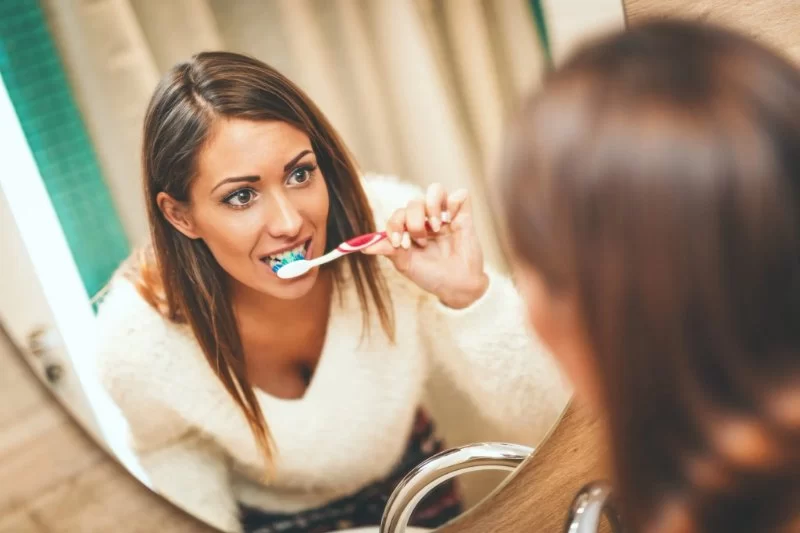
Understanding Oral Care vs. Oral Hygiene
When it comes to dental health, the terms "oral care" and "oral hygiene" are often used interchangeably, but do they actually mean the same thing? Many people are unclear about the difference between the two, leading to confusion about how best to maintain their oral health. In this article, we’ll break down the difference between oral care and oral hygiene and explain why both are crucial for your overall well-being.
1. What is Oral Care?
Oral care refers to the broader practices and habits we follow to maintain our oral health. It encompasses everything from brushing and flossing to visiting the dentist for regular check-ups. It’s a general approach to caring for your mouth, teeth, and gums, ensuring they remain in the best condition possible. Oral care is a proactive step towards preventing dental issues before they arise.
1.1 The Importance of Regular Check-ups
One of the key elements of oral care is scheduling regular check-ups with your dentist. Even if you brush and floss every day, it’s essential to have a professional clean your teeth and check for any underlying issues that might not be visible to the naked eye. Regular check-ups can detect early signs of tooth decay, gum disease, and even oral cancer, giving you the opportunity to address them before they become major problems.
1.2 Using the Right Tools for Oral Care
Another essential part of oral care is using the proper tools. This includes choosing the right toothbrush, toothpaste, mouthwash, and floss. Electric toothbrushes, for example, have been shown to be more effective at removing plaque and bacteria compared to manual brushing. Additionally, the use of fluoride toothpaste helps strengthen enamel, protecting your teeth from cavities.
1.3 Diet and Oral Care
Oral care extends beyond brushing and flossing; it also involves making smart dietary choices. Foods rich in vitamins and minerals, like calcium, phosphorus, and vitamin C, help strengthen your teeth and gums. On the other hand, sugary foods and acidic beverages can contribute to tooth decay and erosion. A balanced diet supports not only your overall health but also your oral health.
2. What is Oral Hygiene?
Oral hygiene refers specifically to the daily habits you adopt to keep your mouth clean and free from harmful bacteria. These practices help prevent dental problems such as cavities, gum disease, and bad breath. While oral care includes a broader approach, oral hygiene is all about the actions you take on a daily basis to ensure your mouth stays healthy.
2.1 Daily Brushing and Flossing
The most fundamental part of oral hygiene is brushing your teeth twice a day and flossing regularly. Brushing removes food particles and plaque from the surfaces of your teeth, while flossing helps reach areas between your teeth that a toothbrush might miss. Neglecting these habits can lead to the buildup of plaque, which can harden into tartar, contributing to gum disease and tooth decay.
2.2 Rinsing with Mouthwash
Incorporating mouthwash into your routine can further improve your oral hygiene. Mouthwash helps kill bacteria in your mouth, freshen your breath, and provide additional protection against plaque buildup. Some mouthwashes also contain fluoride, which helps prevent tooth decay and strengthens your teeth over time.
2.3 The Role of Tongue Scraping
Many people forget that the tongue is a breeding ground for bacteria, which can contribute to bad breath and overall poor oral hygiene. Using a tongue scraper as part of your routine can help remove bacteria and debris from the surface of your tongue, improving the cleanliness of your mouth and giving you fresher breath.
3. How Oral Care and Oral Hygiene Work Together
While oral care and oral hygiene may seem similar, they work together to provide comprehensive protection for your oral health. Think of oral care as a broad approach that incorporates professional visits, diet, and overall health habits, while oral hygiene focuses on the specific actions you take daily to maintain cleanliness and prevent dental issues.
3.1 Preventing Oral Health Issues with Both
When you combine proper oral hygiene with good oral care practices, you give your teeth and gums the best chance to remain healthy. For example, brushing and flossing daily removes the plaque that can lead to cavities and gum disease, while regular dental check-ups ensure that any early signs of issues are caught before they can develop into more serious conditions.
3.2 A Healthy Lifestyle Supports Oral Health
Oral care is also about maintaining a healthy lifestyle. A well-balanced diet, regular exercise, and reducing stress all play a role in your oral health. For instance, stress can lead to teeth grinding, which can damage your teeth and cause jaw pain. Incorporating lifestyle changes that support your overall health can positively impact your oral hygiene routine and vice versa.
4. The Impact of Neglecting Oral Hygiene and Oral Care
Neglecting both oral care and oral hygiene can lead to a range of dental problems. From cavities and gum disease to tooth loss and bad breath, poor oral habits can take a serious toll on your dental health. What’s worse, untreated dental issues can lead to more severe health problems, such as heart disease and diabetes, as the bacteria from your mouth can enter your bloodstream.
4.1 Real-Life Consequences of Neglect
Take the story of James, a 35-year-old man who neglected his oral hygiene for years. He didn’t floss, rarely brushed, and only visited the dentist when absolutely necessary. Eventually, James developed gum disease, which led to tooth loss and an increased risk of heart disease. His story is a reminder of how essential both oral care and oral hygiene are to maintaining not just healthy teeth, but also overall well-being.
4.2 The Financial Cost of Poor Oral Health
Ignoring oral care and hygiene can be costly in the long run. Dental procedures such as fillings, crowns, and gum surgeries can be expensive, especially if they’re needed to fix problems that could have been avoided with proper care. Maintaining a healthy oral hygiene routine and scheduling regular dental check-ups can save you money by preventing more serious and expensive issues down the road.
5. Tips for Maintaining Optimal Oral Care and Hygiene
To maintain optimal oral health, it's essential to establish both a strong oral care routine and good oral hygiene habits. Here are some practical tips to help you achieve this:
5.1 Brush Twice a Day with Fluoride Toothpaste
Use a soft-bristled toothbrush and fluoride toothpaste to brush your teeth for two minutes, twice a day. Make sure to cover all surfaces of your teeth and gums to remove plaque effectively.
5.2 Floss Daily
Flossing once a day helps remove food particles and plaque from between your teeth, where your toothbrush can’t reach. This is crucial for preventing cavities and gum disease.
5.3 Eat a Balanced Diet
Incorporate foods rich in calcium, vitamins, and minerals into your diet to support strong teeth and gums. Avoid sugary snacks that can contribute to cavities and tooth decay.
5.4 Visit the Dentist Regularly
Schedule regular dental check-ups every six months to ensure that any dental issues are caught early. Professional cleanings will also remove plaque buildup that can’t be reached by regular brushing and flossing.
For more personalized tips and services, visit Dentistry Toothtruth for the best dental care recommendations.







 Dental Solutions Market Street4.0 (576 review)
Dental Solutions Market Street4.0 (576 review) Mesa Valley Modern Dentistry4.0 (344 review)
Mesa Valley Modern Dentistry4.0 (344 review) Washington Square Dental4.0 (121 review)
Washington Square Dental4.0 (121 review) Gregg W Jepson DMD5.0 (7 review)
Gregg W Jepson DMD5.0 (7 review) Growing Smiles of Voorhees4.0 (2464 review)
Growing Smiles of Voorhees4.0 (2464 review) Metropolitan Endodontics4.0 (78 review)
Metropolitan Endodontics4.0 (78 review) The Importance of Oral Health Education During Pregnancy for a Healthy Pregnancy
The Importance of Oral Health Education During Pregnancy for a Healthy Pregnancy Best Tips for Brushing Your Teeth Properly for Healthy Gums: Essential Techniques for Oral Health
Best Tips for Brushing Your Teeth Properly for Healthy Gums: Essential Techniques for Oral Health Why Skipping Dental Checkups Can Lead to Bigger Oral Health Problems
Why Skipping Dental Checkups Can Lead to Bigger Oral Health Problems Advantages of Porcelain Dental Restorations
Advantages of Porcelain Dental Restorations How Can Diabetes Cause Tooth and Gum Problems? Preventing and Managing Oral Health Issues
How Can Diabetes Cause Tooth and Gum Problems? Preventing and Managing Oral Health Issues Healthy Habits for Promoting Good Oral Health and Hygiene: Tips for a Healthy Smile
Healthy Habits for Promoting Good Oral Health and Hygiene: Tips for a Healthy Smile